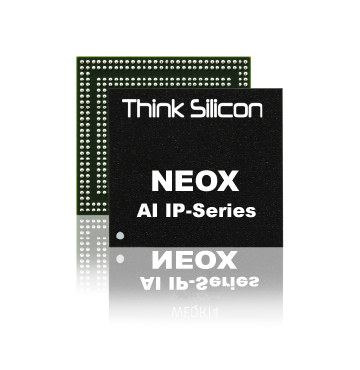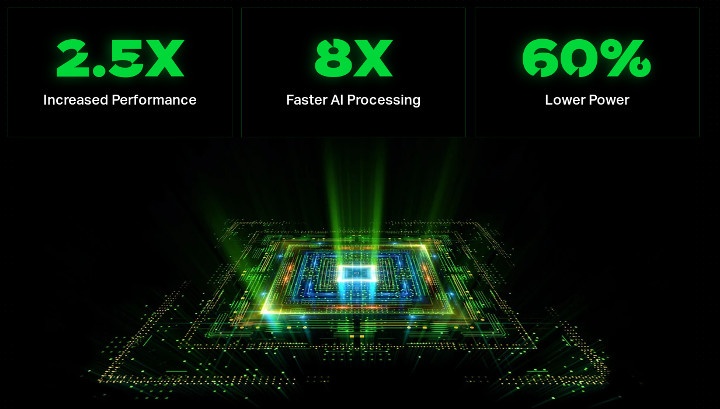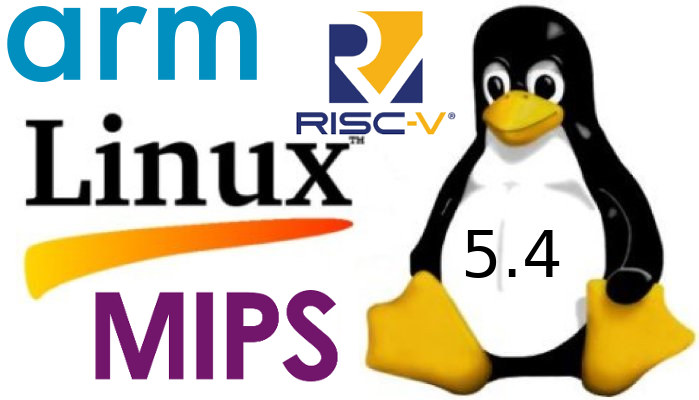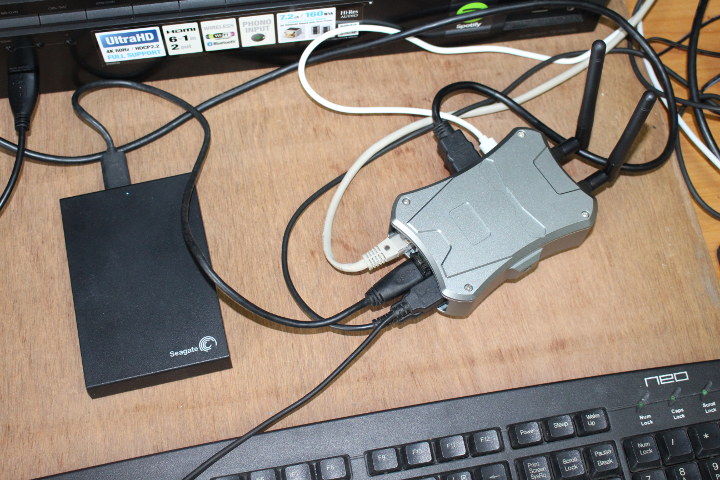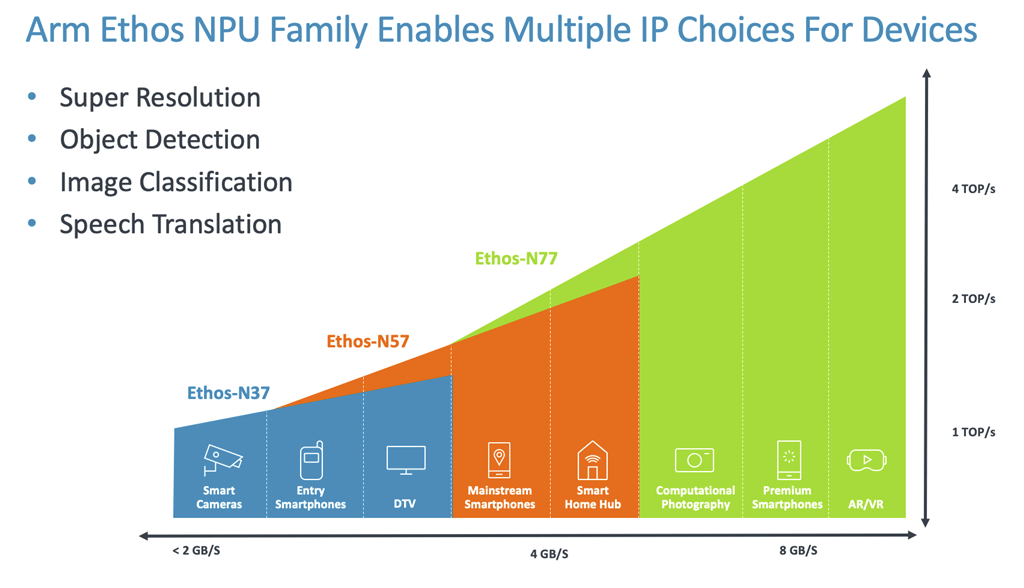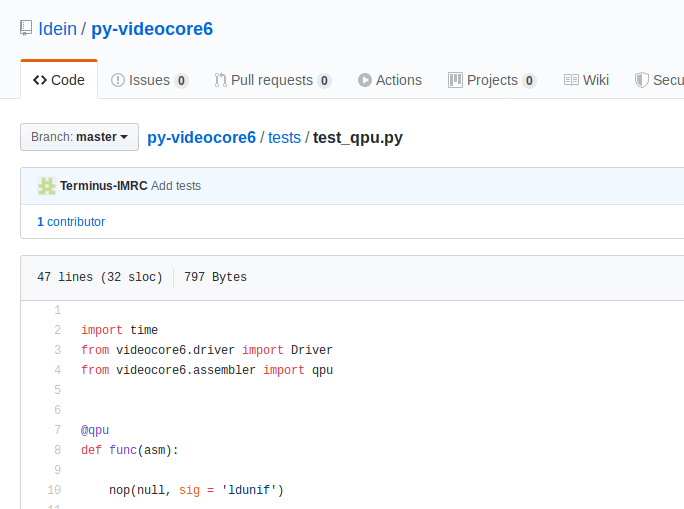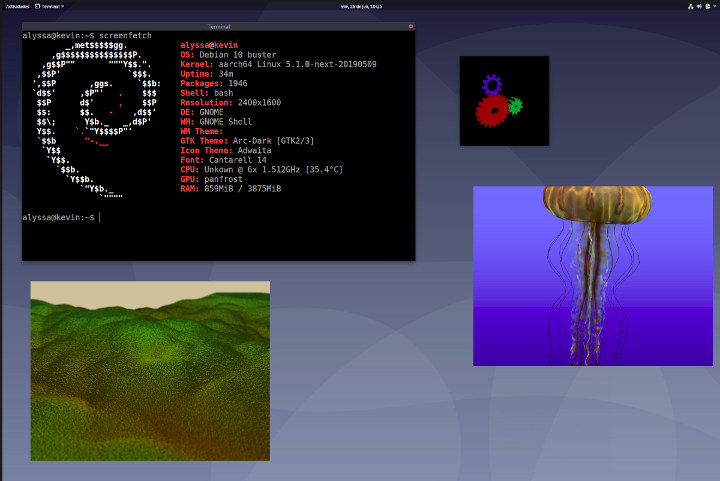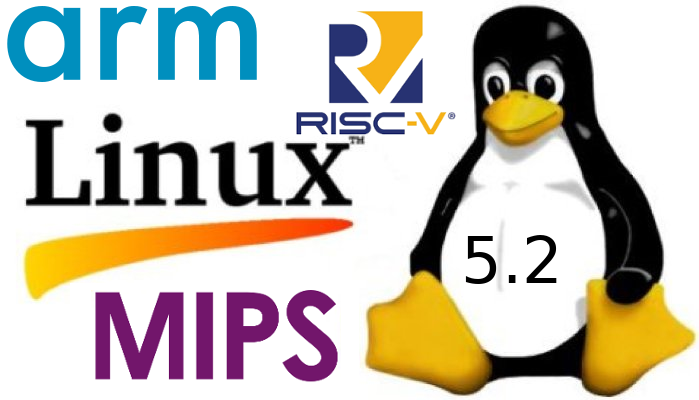We are seeing more and more RISC-V microcontrollers and processors hitting the market, but so far they all lacked a GPU for 3D graphics acceleration. Think Silicon, the make of NEMA GPU for IoT and wearables, has now announced it will demonstrate NEOX|V GPU, the first RISC-V ISA based 3D, at the RISC-V Summit at the San Jose Convention Center, on December 10-12, in San Jose, California. NEOX|V key features: Parallel multi-core and multi-threaded architecture based on the RISC-V64GC ISA instruction set with adaptive NoC (Networks-on-Chip) Configurable from 4 to 64 cores Variety of cache sizes and thread counts organized in 1 to 16 cluster elements Variety of cluster/core configurations with compute power ranging from 12.8 to 409.6 GFLOPS at 800 MHz Support for FP16, FP32, and FP64 plus SIMD instructions Beside 3D graphics, the RISC-V GPU can also be used for machine learning, vision/video processing, and open GPGPU compute […]
Imagination Unveils IMG A-Series GPU Designed For Everything from IoT to Mobile and Server
Imagination Technologies has just launched IMG A-Series GPU which they claim is “The GPU of Everything” and “The fastest GPU IP ever”. IMG A-Series can be customized and scaled for various applications & markets from automotive, AIoT, set-top box, mobile, and server. Compared to the company’s earlier PowerVR 9Series GPU, IMG A-Series GPU delivers 2.5 times more performance, eight times faster AI processor, and 60% less power while running complex content with the same process node, area, and under similar conditions. IMG A-Series GPU supports the latest API standards including OpenGL ES, Vulkan, OpenCL, and Imagination provides a Unified AI API for use in combination with PowerVR neural network accelerators. It also offers 5x performance density compared to the best current shipping PowerVR devices and supports PVRIC4 lossless or virtually-lossless compression guaranteeing a 50% bandwidth and footprint reduction. The new GPU also leverages HyperLane Technology with up to eight individual, […]
Linux 5.4 Release – Main Changes, Arm, MIPS & RISC-V Architectures
Linus Torvalds has just announced the release of Linux 5.4: Not a lot happened this last week, which is just how I like it. And as expected, most of the pull requests I got were for the 5.5 merge window, which I’ll obviously start working through tomorrow. What little there is here is mostly some networking updates (mix of network drivers and core networking), and some minor GPU driver updates. Other than that it’s a small collection of random other things all over. The appended shortlog is small enough that you might as well just scroll through it. Anyway, this obviously opens the merge window for 5.5. It’s not ideal timing with Thanksgiving week coming up, but it hopefully shouldn’t be too much of an issue. If I fall behind (not because I’m all that big of a fan of the indiscriminate and relentless turkey-killing holiday) it’s because we’ve got […]
NanoPi M4V2 Kit Review – Part 2: FriendlyCore Desktop
We’ve already seen how to assemble NanoPi M4V2 metal case kit which offers an Arm mini PC solution with support for NVMe SSD. The new NanoPi M4V2 Rockchip RK3399 SBC is an evolution of the M4 board that brings faster LPDDR4 memory and adds power & recovery buttons. Since we’ve already tested several RK3399 SBC‘s and TV boxes, I planned to focus the review on thermal design evaluation (i.e. see how well the board cools), and see how memory bandwidth evolved from LPDDR3 to LPDDR4. I wanted to do so both with Linux and Android, since I could compare NanoPC-T4 (LPDDR3) benchmarks in Android. But this requires an eMMC flash module, and I don’t own any. So instead I planned to run Armbian because of support for armbian-monitor for nice temperature chart but it’s not working just yet, so instead I’ve done all tests with FriendlyCore Desktop (rk3399-sd-friendlydesktop-bionic-4.4-arm64-20190926.img) based on […]
Arm Introduces Ethos NPU Family, Mali-G57 GPU, and Mali-D37 Display Processor
Arm has just announced four new IP solutions with the most interesting being Ethos NPU (Neural Processing Unit) family with both Ethos-N57 and Ethos-N37 NPUs for mainstream devices, but the company also announced the new Arm Mali-G57, the first mainstream Valhall GPU, as well as Arm Mali-D37 DPU (Display Processing Unit) for full HD and 2K resolution. Arm Ethos NPU Family There are three members of the new Ethos family, and if you’ve never heard about Ethos-N77 previously, that’s because it was known as Arm ML processor. The three NPU’s cater to different AI workloads / price-point from 1 TOPS to 4 TOPS: Ethos-N37 Optimized for 1 TOP/s ML performance range 512 8×8 MAC/cycle 512KB internal memory Small footprint (<1mm2) For smart cameras, entry smartphones, DTV Ethos-N57 Optimized for 2 TOP/s ML performance range 1024 8×8 MAC/cycle 512KB internal memory For mainstream smartphones, smart home hubs Ethos-N77 Up to 4 […]
py-videocore6 Raspberry Pi 4 GPGPU Python Library Leverages VideoCore 6 GPU
Raspberry Pi 4 SBC was released at the end of June with a new Broadcom BCM2711B SoC that also includes VideoCore 6 (VC6) GPU for 2D and 3D graphics, and that could also be used for general-purpose GPU computing (GPGPU). In the past we’ve seen companies such as Idein leveraged VideoCore 4 GPGPU capabilities in Raspberry Pi 3 / Zero to accelerate image recognition, and they released a python library (py-videocore) for that purpose. The problem is that the VideoCore 6 GPU found in RPi 4 is quite different than the VideoCore 4 GPU in earlier versions of the Raspberry Pi Foundation board as forum member phiren explains: I’ve been looking though the open source drivers and here are some of my observations: vc6 is clearly derived from vc4, but it is significantly different. vc6 is only a slight extension over vc5 The QPU pipeline stays mostly the same, you […]
Rock Pi 4 SBC Runs GNOME & KDE Plasma using Panfrost Open Source GPU Driver & Wayland
One of the highlights of Linux 5.2 release was support for two new Arm Mali GPU open-source drivers, namely Lima for Mali-4xx GPU, and Panfrost for the Midgard Mali-T6xx/7xx/8xx series, and the more recent Bifrost Mali-Gxx GPUs. Collabora worked on the release and was donated a few Rock Pi 4 boards from Radxa directly to work on the project. For those who are not familiar, Rock Pi 4 board is powered by a Rockchip RK3399 processor with a Mali-T860MP4 GPU that is supported by Panfrost open source GPU driver. The company managed to have Debian 10 Buster running on Rock Pi 4 using 3D graphics acceleration thanks to Panfrost drivers on both GNOME and KDE Plasma desktop environment, as well as Weston Wayland compositer. The good news is that you can build Rock Pi 4 images by yourself using Debos with the following commands:
Alternatively, you could directly download […]
Linux 5.2 Release – Main Changes, Arm, MIPS & RISC-V Architectures
Linus Torvalds announced the release of Linux 5.2 last Sunday: So I was somewhat pre-disposed towards making an rc8, simply because of my travels and being entirely off the internet for a few days last week, and with spotty internet for a few days before that [*]. But there really doesn’t seem to be any reason for another rc, since it’s been very quiet. Yes, I had a few pull requests since rc7, but they were all small, and I had many more that are for the upcoming merge window. Part of it may be due to the July 4th week, of course, but whatever – I’ll take the quiet week as a good sign. So despite a fairly late core revert, I don’t see any real reason for another week of rc, and so we have a v5.2 with the normal release timing. There’s no particular area that stands […]


